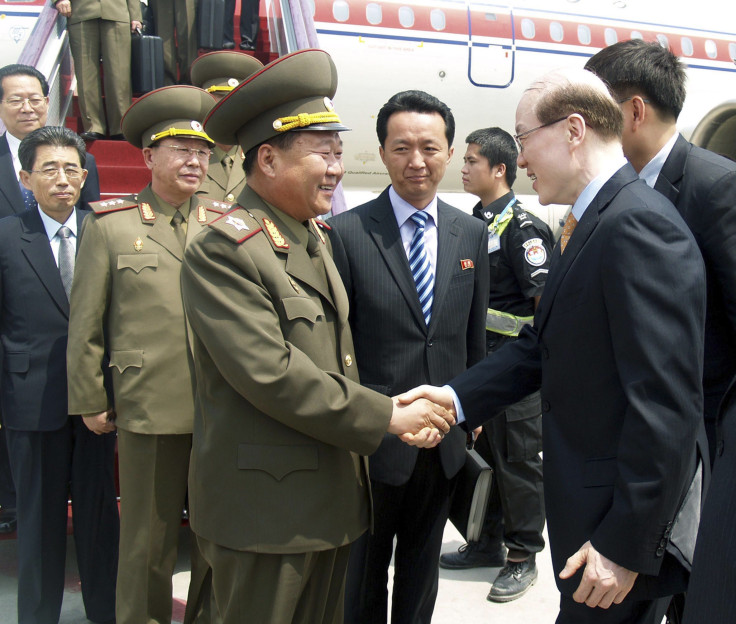North Korea Still Courting Chinese Business Partners After Execution Of Jang Song Thaek

Though China and its neighbor North Korea are political allies, North Korea has made it increasingly difficult for the Chinese to do business in the country. Which explains why a senior North Korean economic official recently made a secret trip to China, North Korea's main economic partner, in the hopes of attracting additional investment.
According to the English-language version of the South Korean newspaper Chosun Ilbo, North Korea’s chairman of the State Commission for Economic Development, Kim Ki-sok, paid a visit to China and other areas of Asia seeking to firm up economic ties. Kim’s visit is the first from a high-ranking North Korean official since the dramatic expulsion and execution of Jang Song-thaek, leader Kim Jong-un’s uncle, who was known for spearheading Chinese business partnerships.
An unnamed source in Beijing said that Kim made a stop in China’s capital city Beijing, but also visited Shenzhen, a southern Chinese city that is the home to one of the most successful Special Economic Zones. While there, Kim met with businesses with expertise in such zones that could help North Korea develop its own. Last October, the North launched a commission that planned for 14 special economic zones around the country.
The sources said that Kim’s efforts were for the most part fruitless, and he returned to North Korea without any solid leads.
Jang Song-thaek was one of the biggest North Korean business liaisons to China, and had spent several years building his network of contacts, initially under previous leader Kim Jong-Il. After Kim Jong-Il’s passing in late 2011, Jang was kept as a top advisor to Kim Jong-un. However, analysts suspect that Jang’s close economic ties to China, which are key to North Korean industrial and agricultural resources, threatened the new leader, ultimately leading to Jang’s execution.
As a result, Sino-North Korean trade ties seemed to be in limbo. However, despite several stories of difficult, erratic and sometimes unsafe working conditions when dealing with North Korean counterparts, China is still interested in rebuilding relations. According to Beijing diplomatic sources speaking to the paper, the agenda during China’s upcoming annual parliamentary meeting, the National People’s Congress, is forming an action group to handle the initiative now that Jang and his associates have been removed from office.
Some watchers predict that either Prime Minister Pak Pong-ju or deputy department chief of the DPRK’s Workers Party, Ri Su-yong, will also make a visit to China soon and will likely be replacing some of the positions previously held by Jang’s associates.
© Copyright IBTimes 2025. All rights reserved.






















